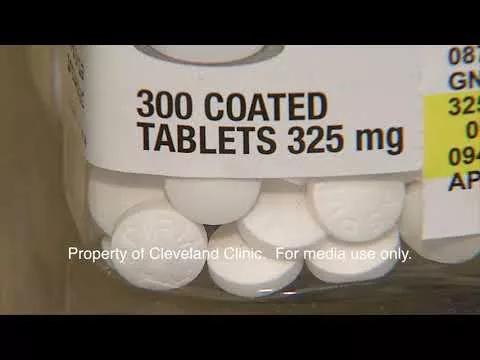The U.S. Preventive Services Takes Force has updated its guidance on aspirin use for prevention of heart disease and stroke. A cardiologist weighs in on the recommendations.

Cleveland Clinic News Service | 216.444.0141
We’re available to shoot custom interviews & b-roll for media outlets upon request.
CCNS health and medical content is consumer-friendly, professional broadcast quality (available in HD), and available to media outlets each day.
images: 0
video: 3
audio: 2
text: 2
Content is property of Cleveland Clinic and for news media use only.
CLEVELAND – The U.S. Preventive Services Task Force is changing its recommendations when it comes to aspirin use to prevent heart disease and stroke. The panel now says that people over the age of 40, who don’t already have a history of heart disease, should not take the medication.
“All of the other organizations out there have fallen in line with these recommendations, the American College of Cardiology, the American Heart Association and a very strong message from the Food and Drug Administration that aspirin is not really indicated to prevent heart disease in people that don’t already have it,” said Steven Nissen, MD, cardiologist for Cleveland Clinic.
The task force also issued similar guidance for people between the ages of 40 and 59 years old who are at higher risk for heart disease. They are advised to talk to their physician first before taking the medication.
Dr. Nissen said while aspirin has been proven to be beneficial in some cases, evidence shows it can be harmful and cause internal bleeding, and that risk increases with age. It’s also why the task force updated its recommendations.
When it comes to prevention of heart disease, he said it’s important to get your blood pressure and cholesterol under control. Eating healthy and exercising can help too.
“Those things are a lot more important than whether you take aspirin or not. And so we can’t miss the forest through the trees,” he said. “People want to take a little pill and solve their problems when in fact there are other things they need to do first. And that, I think, is the most important message that we can convey to people.”
It’s important to note these are draft recommendations from the task force. Meaning, a final decision still has to be made on whether to adopt them.